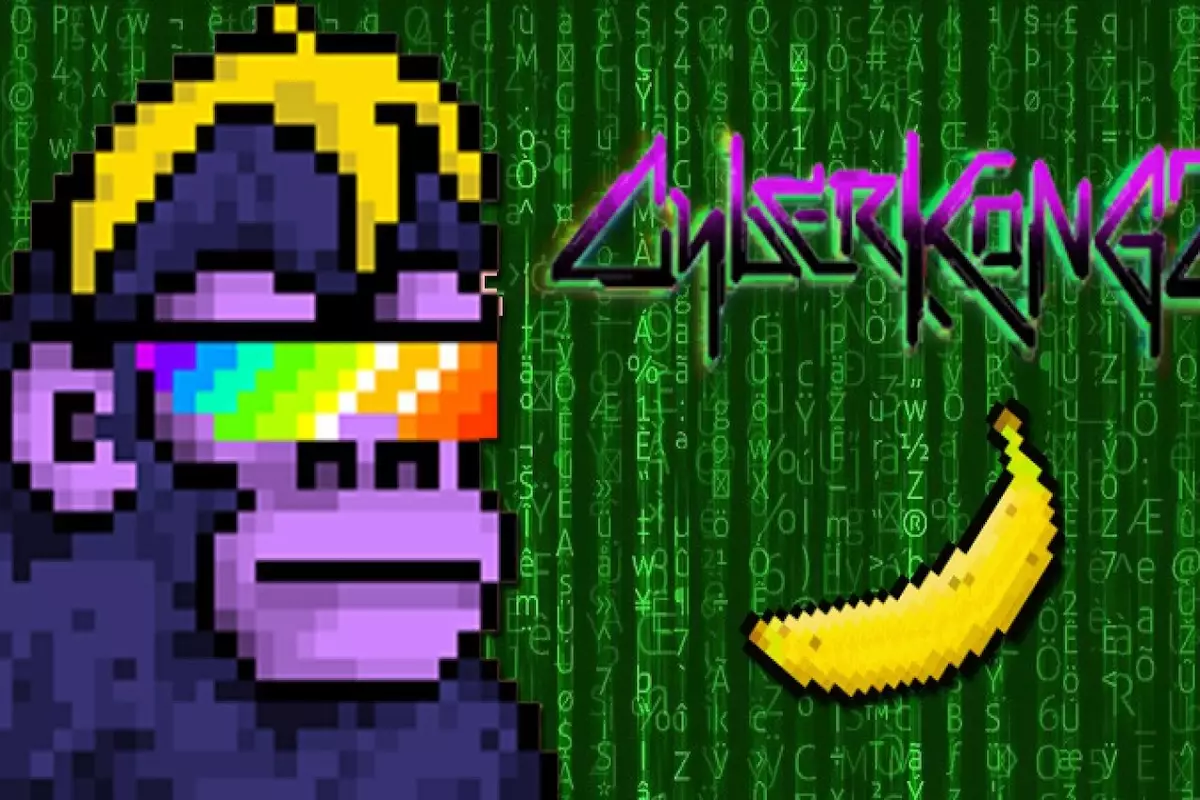The recent issuance of the Wells Notice against CyberKongz by the U.S. Securities and Exchange Commission (SEC) has sent shockwaves through the Web3 gaming community. This official notification indicates a potential enforcement action regarding the classification of certain non-fungible tokens (NFTs) as securities. As the landscape of digital gaming evolves alongside rapidly changing regulations, it has become imperative to grasp the nuances of compliance and classifications in this burgeoning space. This case not only raises questions about CyberKongz but also sets a precedent for the broader NFT market, which is still in its formative stages of regulation.
CyberKongz sold Genesis Kongz NFTs back in April 2021, which have now caught the attention of the SEC. The commission’s assertion that these NFTs may fall under the jurisdiction of securities law underscores a significant shift in regulatory scrutiny. Although CyberKongz argues its actions constituted a contract migration rather than a primary sale, the SEC’s stance exemplifies its commitment to monitoring the evolving digital asset space. If NFTs are indeed classified as securities, this could usher in sweeping changes across a multitude of blockchain gaming projects, fundamentally altering tokenomics, community governance, and fundraising models.
This critical juncture compels CyberKongz to formulate a robust defense within 30 days. The outcome of this case will not only impact the future of CyberKongz but may also shape the discussions around digital gaming assets and regulatory frameworks in the wider industry.
The CyberKongz Wells Notice has sparked intense discussions among major industry players. Notably, leaders from platforms such as Axie Infinity have rallied in support of CyberKongz, emphasizing that heightened enforcement may ultimately prompt the U.S. government to clarify the regulatory landscape for Web3 gaming. Achieving regulatory clarity is paramount for game developers, as it allows them to design sustainable business models that respect compliance while fostering innovation.
The emphasis on compliance is not merely an issue for CyberKongz; it marks a transformative moment in the gaming industry, compelling developers to rethink their token distribution, in-game economies, and user incentive structures. The repercussions of these discussions will resonate long into the future, establishing foundational principles for the Web3 gaming sector.
While the SEC’s spotlight on CyberKongz is illuminating, it is essential to recognize that the United States is just one player in the global regulatory game. Different regions are navigating the complexities of NFT regulations in varied ways. For instance, Europe is gearing up for the implementation of the MiCA (Markets in Crypto-Assets) framework, which should provide more explicit definitions and guidance for NFTs. However, opinions remain divided; while some regulators view NFTs as outside traditional securities laws, others advocate for stricter oversight, especially when investments are involved.
In Asia, countries like Singapore and Hong Kong are fostering pro-innovation regulatory frameworks that encourage responsible experimentation with NFTs and Web3 games. Yet, enforcement agencies maintain a watchful eye to protect consumers and deter illicit activities. Conversely, regions like Latin America and Africa adopt a more laid-back approach, viewing NFTs as instruments for financial inclusion and economic progress, yet remaining alert to inherent risks.
This diverse regulatory environment presents significant challenges for projects like CyberKongz that aim to operate across multiple jurisdictions. A strategic and proactive approach to compliance will be essential for long-term success in this chaotic landscape.
The classification of gaming tokens as securities would bring substantial changes to the industry, affecting everything from compliance requirements to community governance structures. Startups that have thrived on experimentation will now face a pressing need to adapt to evolving regulations. This transition isn’t solely about steering clear of legal pitfalls; it involves building trust within the community by ensuring transparent and accountable practices.
Moving forward, advanced compliance solutions will become indispensable. Robust protocols such as Anti-Money Laundering (AML) and Know Your Customer (KYC) will not only help mitigate illicit activities but will also foster a safer and more reliable ecosystem for players and investors alike. Technology-driven compliance measures will empower projects to innovate without compromising regulatory adherence.
The ripples from the CyberKongz Wells Notice extend far beyond the immediate fallout for this particular project. The intersection of compliance, artist protection, and innovative expression is poised to evolve. Ongoing discourse among gaming companies, regulators, and consumer protection agencies will be crucial in finding a balance conducive to growth while safeguarding stakeholders.
Overall, the long-term repercussions of the CyberKongz case, combined with varied international regulatory approaches, will significantly influence the landscape of Web3 gaming. By remaining vigilant to regulatory trends and prioritizing compliance, stakeholders in the blockchain gaming space can navigate these turbulent waters, ensuring they remain on the cutting edge of innovation without straying afoul of the law. As digital gaming continues to redefine entertainment, the lessons learned from this regulatory scrutiny will undoubtedly inform its trajectory for years to come.


Leave a Reply